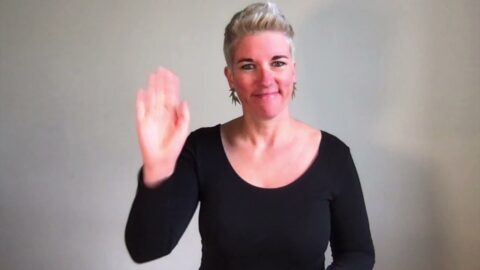Small World is a British online sitcom inspired by Friends. It was created by deaf actors Brian Duffy and Ace Mahbaz, and produced, directed and edited by Louis Neethling (who is also deaf). It features a range of signing deaf characters, a fussy sign language teacher, a new signer, an Italian migrant, a poorly educated deaf person, and a Scottish aspiring actor. We were interested in Small World because the identities of the characters in the sitcom are conveyed through language use. Sign language varies from person to person and the way we sign partly reflects our background. When someone signs, we might make assumptions about the person based on the signs that they use and how they sign them. For the actors of Small World, the challenge is to create dialogue in British Sign Language (BSL) which reflects their characters’ backgrounds and life experiences. How do they achieve this?
The creators and actors of Small World argued that improvisation leads to natural sign language use in the series and commented on the competing demands that the actors have to consider in the process (e.g., comedic value and camera standpoints). The actors frequently spoke about how this process differs from the second series which began with an English script and they felt that their work was made all the more challenging by beginning with written English. The publication of these practices could potentially have an impact on best practices in using sign languages in creative ways and was welcomed by the actors of the series. Hence our emphasis in the blog on the use of improv to create linguistically diverse TV.
Blog + vlog:
Presentation:
Publication:
Kusters, Annelies and Fenlon, Jordan. ““It is natural, really deaf signing” – script development for fictional programmes involving sign languages: ” Multilingua, vol. , no. , 2021, pp. 000010151520210008. https://doi.org/10.1515/multi-2021-0008



